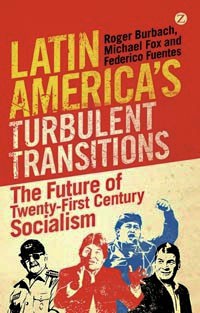Ecuador
'The Greek people are at the epicentre of the capitalism crisis'
Speech given by Eric Toussaint at the SYRIZA youth festival in Athens on O
Rafael Correa discusses Ecuador's 'Citizens' Revolution' and answers his left critics

Rafael Correa speaks at a rally in support of his re-election in next year's poll, Quito, November 10.
By Federico Fuentes
November 11, 2012 -- Green Left Weekly -- While European governments continue to impose policies aimed at making working people pay for a crisis they did not cause, the Ecuadorian government of Rafael Correa has taken a different course.
“Those who are earning too much will be giving more to the poorest of this country”, a November 1 Reuters dispatch quoted Correa as saying. He was announcing a new measure to raise taxes on banks to help fund social security payments.
Ecuador’s banking sector has registered US$349 million in after-tax profits, a November 8 El Telegrafo article said. “The time has arrived to redistribute those profits,” said Correa.
Reuters reported that by lifting the tax rate on bank holdings abroad and applying a new tax on financial services, the government hopes to raise between $200 million and $300 million a year.
The proceeds will fund a rise in the “human development bonus payment” from $35 to $50 a month. About 1.2 million Ecuadorians receive the payment, mainly single mothers and the elderly.
Is Venezuela a 'one off'? A response to Richard Seymour's must-read analysis

Marta Harnecker: Conquering a new popular hegemony

"In recent years, and in increasingly more countries, growing multitudes have rebe
Tariq Ali: Why Ecuador supports Wikileaks and Assange's rights
August 20, 2012 -- GreenLeftTV/Links International Journal of Socialist Renewal -- "Why is it that an Australian, facing prosecution from a European country, decides to appeal for asylum to a South American republic?" Tariq Ali asked and eloquently answered this important question when he spoke outside the embassy of Ecuador in London on August 19, 2012. Ali spoke just before Wikileaks founder Julian Assange addressed the press and supporters from the balcony of the embassy, where he has been granted political asylum by the progressive government of Ecuador.



